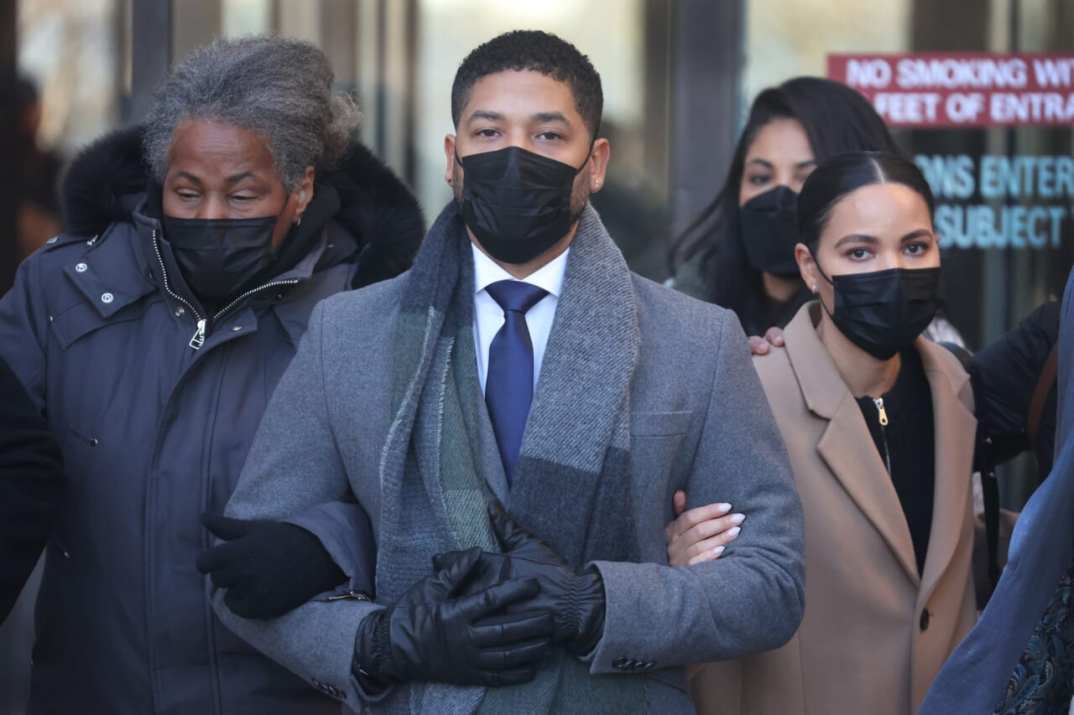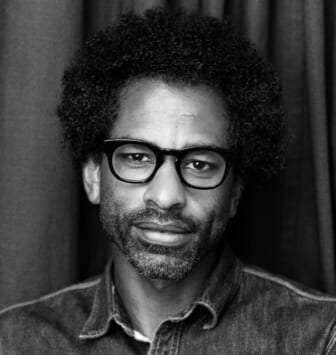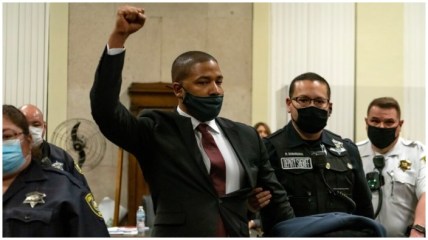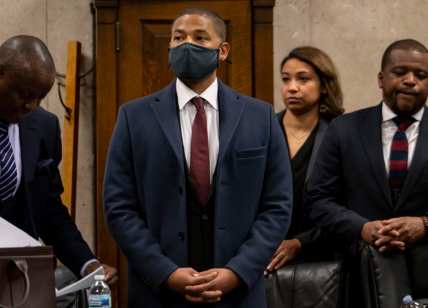Jussie Smollett does not deserve prison time
OPINION: No matter how you feel about his so-called crimes, sending the actor to prison is overkill and an outrageous abuse of power by the city of Chicago.

Editor’s note: The following article is an op-ed, and the views expressed are the author’s own. Read more opinions on theGrio.
No matter what you think of the Jussie Smollett case, it’s clear that he shouldn’t be in prison right now. I’m not writing about his conviction; I’m talking about his sentence. He was convicted of nonviolent crimes that add up to lying to police and wasting their time. But are Karens who lie to police about witnessing Black men committing crimes going to prison? They should, but they are not.
Policing, by nature, is highly inefficient—officers spend lots of time investigating crimes that are never solved, following leads that never help, and searching for people who are never found. Lying to the police and wasting their time may be crimes, but all crimes should not result in prison time.
The purpose of prison is to remove criminals from society to deter them and others from committing that crime and potentially rehabilitate people. Smollett did not need to be removed from society; he was never a danger to anyone, nor did he need whatever rehab prison barely provides. And really, is this a crime that we need to deter people from? Did anyone watch this and think maybe I’ll try that?
Before he was sent to prison, Smollett had already paid a heavy price for that night in Chicago, a price that would surely deter anyone from doing what he’s convicted of doing. His Hollywood career is over, and his public reputation is in shambles. Sending him to prison is the vengeful act of a local justice system that feels disrespected. There’s a strong air of We’ll show you who’s boss here. The notion of incarceration as revenge by the city should strike fear in all of us. It could happen to you for lesser crimes. We should reserve prison for violent offenders, not people who anger local officials.
I know Smollett personally, and I feel for him being locked up—but the true wrongness of what’s happened to him wasn’t really clear to me until I saw an editorial by Chicago’s top prosecutor Kim Foxx. She writes that in this case, “our justice system failed.” Foxx opted not to pursue a criminal conviction because Smollett committed a nonviolent crime, there was no real victim, he had no record and he’d already been nationally shamed. But even though prosecutors are supposed to have discretion over who to pursue and who to let go, after she decided that he had suffered enough and declined to pursue the case further, a judge appointed a special prosecutor to investigate the situation.
Foxx says, “a small group of people hijacked the judicial system to enact what is best described as mob justice.” How does a city that deals with hundreds of murders each year have time and money to devote a special prosecutor to the case of a celebrity who may have lied about an incident where no one was hurt?
I understand that many Black people are highly offended by Smollett’s seemingly crying wolf as if his case will hurt our ability to call out racist attacks when they actually happen. The idea that someone could take away or minimize our ability to call out racism is enraging. But it’s also absurd. No matter what happened with Smollett, people who are open to our assault on racism will continue to be open to our arguments, and people who are racist will continue to fight against our arguments.
Smollett hasn’t changed that calculus one bit. I know this because I lived through a much more elaborate example of a racism hoax several decades ago.

When I was a freshman at Emory University long ago, a sister in my class said someone had broken into her dorm room, written the N-word in lipstick on her mirror and vandalized her room. The campus went into an uproar. Black students protested day and night, including a sit-in in the president’s office. National news outlets lined the sidewalks and pushed microphones in our faces as we walked to class. For weeks, the school was paralyzed. And then the sister said her room had been attacked again. All hell broke loose. But—you know where this is going—after weeks of insanity, it was discovered that the perpetrator was…her.
Apparently, just before it all started, she was caught cheating on a test and was about to face a disciplinary committee. The idea that she had been lying, and thus we had been protesting on behalf of a phantom attack, was mortifying. All the Black students who had fought so hard on her behalf were embarrassed. We could taste the egg on our faces. We wondered if we would ever again be taken seriously. We wondered if we would ever again be able to protest racism on campus. And, of course, we were able to protest racism on campus. When other incidents happened and inequalities arose, we spoke out, and we were heard. No one ever said, maybe we shouldn’t listen to them because that girl lied that time. Neither Smollett nor any individual Black person has the power to stop our community’s ability to fight against racism.
That said, I understand the fear that he could and the resentment and the anger his case would bring up. But I also think that when we step away from the mob, we should admit that there’s still a lot of ambiguity in this story. It’s reasonable to still be confused about what really happened that night. I’m not sure I believe Smollett’s story—some white racists attacked him on the street, and it’s not on camera? Police say there are untruths in Smollett’s story, but since when do we believe the police? The police lie all the time, and their version of events is not convincing.
They say that Smollett hired two large, physically distinct Black men to play his attackers. If he’d planned a racial attack, wouldn’t he hire white people? Smollett is highly experienced at creating theater, he recently released a small-budget film that he directed. If he wanted to create a drama, he could surely create one that would look and feel a lot more convincing than the slapdash one we’re told he created.
If nothing else, it should stand out that they’re saying he created a piece of political theater that was mediocre. They’re also saying that his motive was to gain attention, but this happened while he was on a national TV show and getting roles in movies like Ridley Scott’s Alien: Covenant and Reggie Hudlin’s Marshall. “He did it for attention” doesn’t add up. At this point, Smollett would be better off admitting he did it, but he continues to swear he’s innocent. I’m not sure what happened, but I know both accounts are deeply flawed. I don’t know what happened on the night that effectively ended Smollett’s career, and neither do you.
I do know that in 2020 when millions of us were marching in the streets and agitating for police reform and chanting about George Floyd and Breonna Taylor, part of what we were fighting for was wholesale criminal justice reform, including prison reform. Sending nonviolent Black men to prison was the opposite of what we wanted. I don’t care if you think Smollett is guilty; I don’t care if you’re angry at him for whatever happened; I don’t care if you don’t care about him. No matter what, I think you gotta admit that it’s unnecessary to put him in prison. It’s not benefitting society, it’s overkill, and it’s an outrageous abuse of power by the city of Chicago.

Touré is the host of the podcast “Toure Show” and the podcast docuseries “Who Was Prince?” He is also the author of seven books.
TheGrio is FREE on your TV via Apple TV, Amazon Fire, Roku, and Android TV. Please download theGrio mobile apps today!


